Introduction & Analysis
his collection of open-source English-language news articles published over the past week highlights significant events and issues concerning Myanmar. They present a snapshot of the country's safety and security landscape.
Myanmar continues to suffer a humanitarian crisis with millions displaced and critical food shortages intensified by blocked supply routes. At the same time, the military junta escalates forced conscription and financial extortion in civilian areas. It keeps political leaders like Aung San Suu Kyi in isolated detention despite health concerns.
Despite the military's increased reliance on air support and advanced drone technology in siege warfare, ethnic armed organizations like the Karen National Union and Chin Brotherhood are making territorial gains and initiating reconstruction in areas under their control, even as inter-ethnic conflicts and the use of German-designed Heckler & Koch firearms by both sides complicate the ongoing civil war.
Economically, the nation faces disrupted trade routes with escalating checkpoint tolls, soaring commodity prices, and a severe electricity crisis. Its significant role as a global supplier of rare earth elements, primarily to China, fuels both economic leverage for armed groups and extensive environmental degradation.
International responses include calls for extended Temporary Protected Status and corporate divestment from military suppliers like Airbus, alongside the ILO invoking Article 33 against the junta's labor violations; simultaneously, Myanmar garment workers have achieved fragile victories in strikes for higher wages despite risks of retribution, even as Russia deepens its energy and infrastructure investments with the regime.
Census & Elections

Myanmar’s Sham Election Plan Is A Dangerous Ruse – OpEd
Myanmar’s junta's announcement of national elections in December 2025 or January 2026 is described as a "dangerous ruse" to consolidate power and manipulate opinion, rather than a step towards democracy, as the country remains under martial law with widespread repression and silenced opposition. This electoral process is deemed "farcical" and an "insult to democracy" given the current context, echoing a previous "charade" in 2010 that allowed the military to strengthen its hold on power. Therefore, ASEAN and the international community must categorically reject any election that does not meet international democratic standards, insisting on preconditions such as lifting the state of emergency, releasing political prisoners, and restoring freedoms, to avoid lending legitimacy to the junta's deception.
Conflict
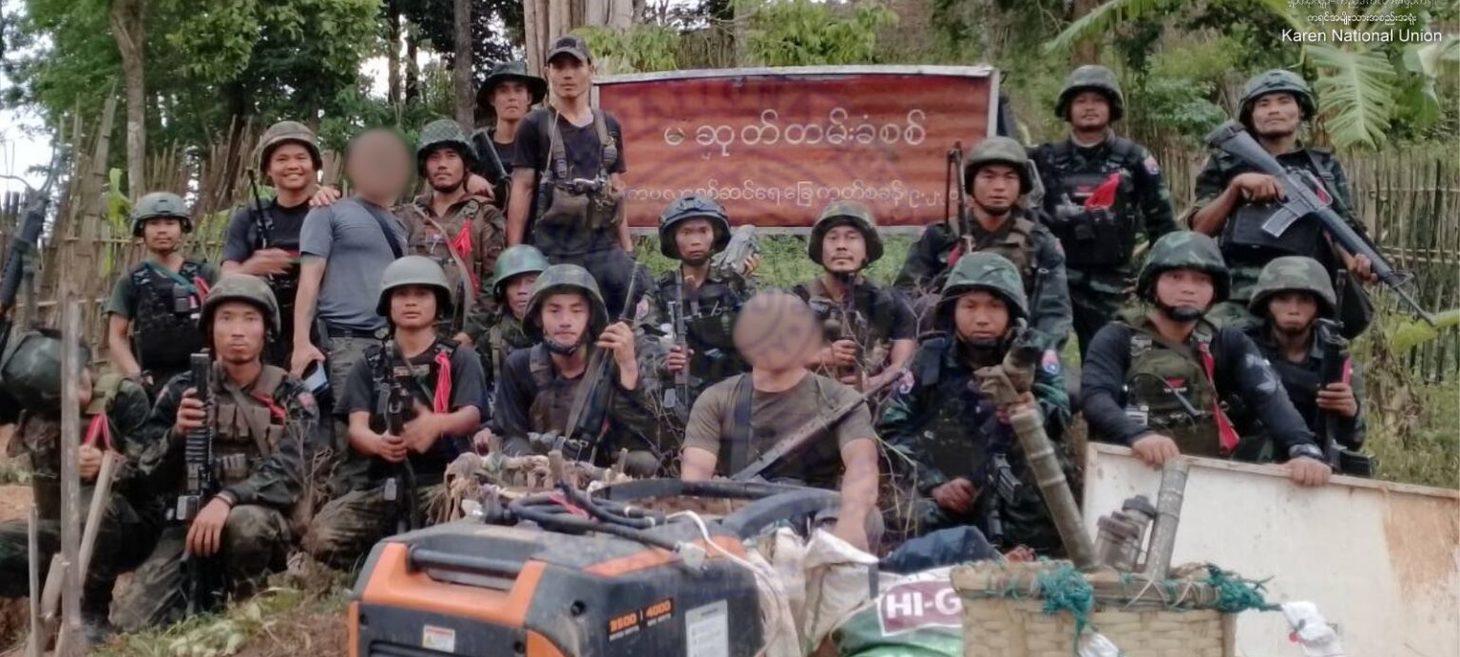
All but three junta border bases eliminated in Dooplaya, Karen fighters claim
Karen fighters claim to have eliminated all but three junta border bases in Dooplaya District, a territory designated by the Karen National Union (KNU) and controlled by its Brigade 6. According to KNU spokesperson Padoh Saw Taw Nee, the Myanmar military regime now controls only these three remaining outposts in the area. Dooplaya District shares a border with Thailand, encompasses parts of Karen and Mon States and Tanintharyi Region, and KNU’s Brigade 6 resumed offensive operations last October, successfully capturing several bases south of Myawaddy.
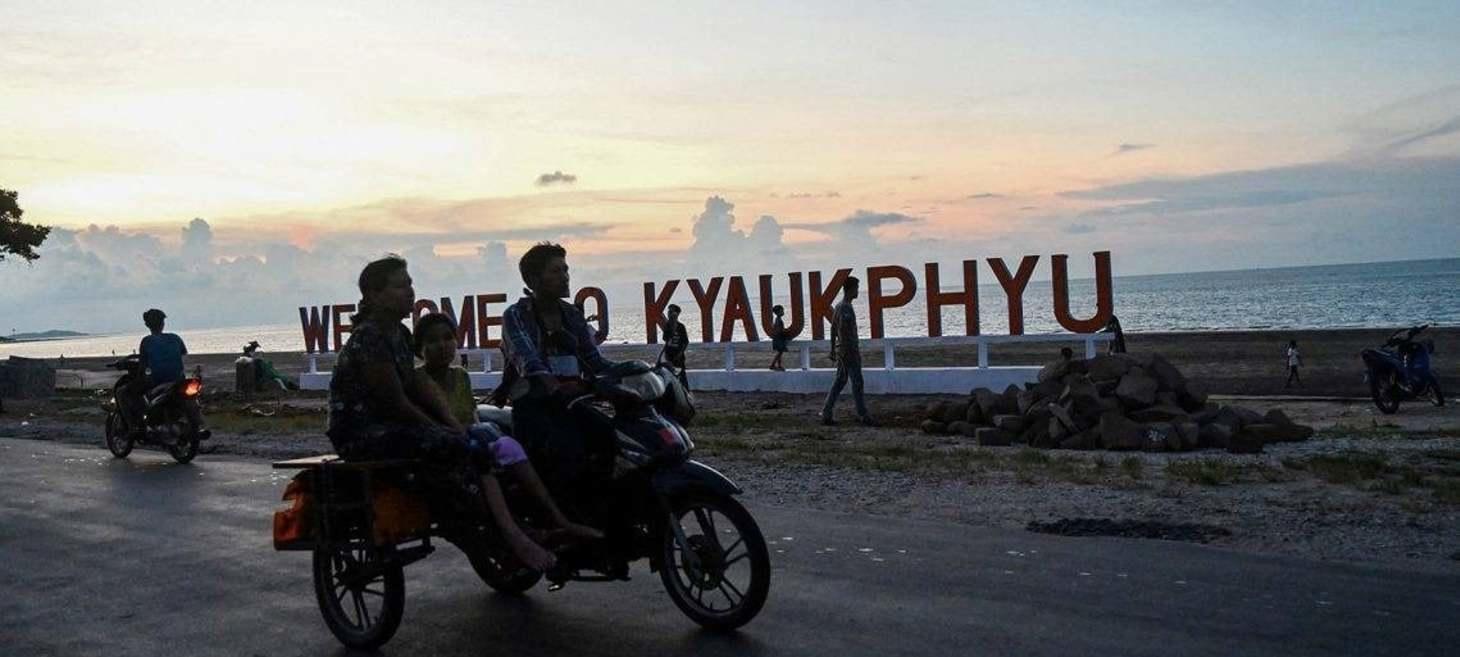
Kyaukphyu residents face critical food shortages as clashes intensify in western Myanmar
Civilians in Kyaukphyu, Rakhine State, are experiencing severe food shortages and unaffordable prices due to escalating clashes between the Arakan Army (AA) and junta forces. This crisis is intensified by blocked supply routes, the closure of most local shops, the absence of regular cargo ships, restrictions imposed by the military junta on rice sales and transport, and a total ban on fishing. As a result, prices for essential items like rice, chicken, pork, and eggs have surged dramatically, leaving many residents, particularly daily wage earners and lower-income families, facing starvation.
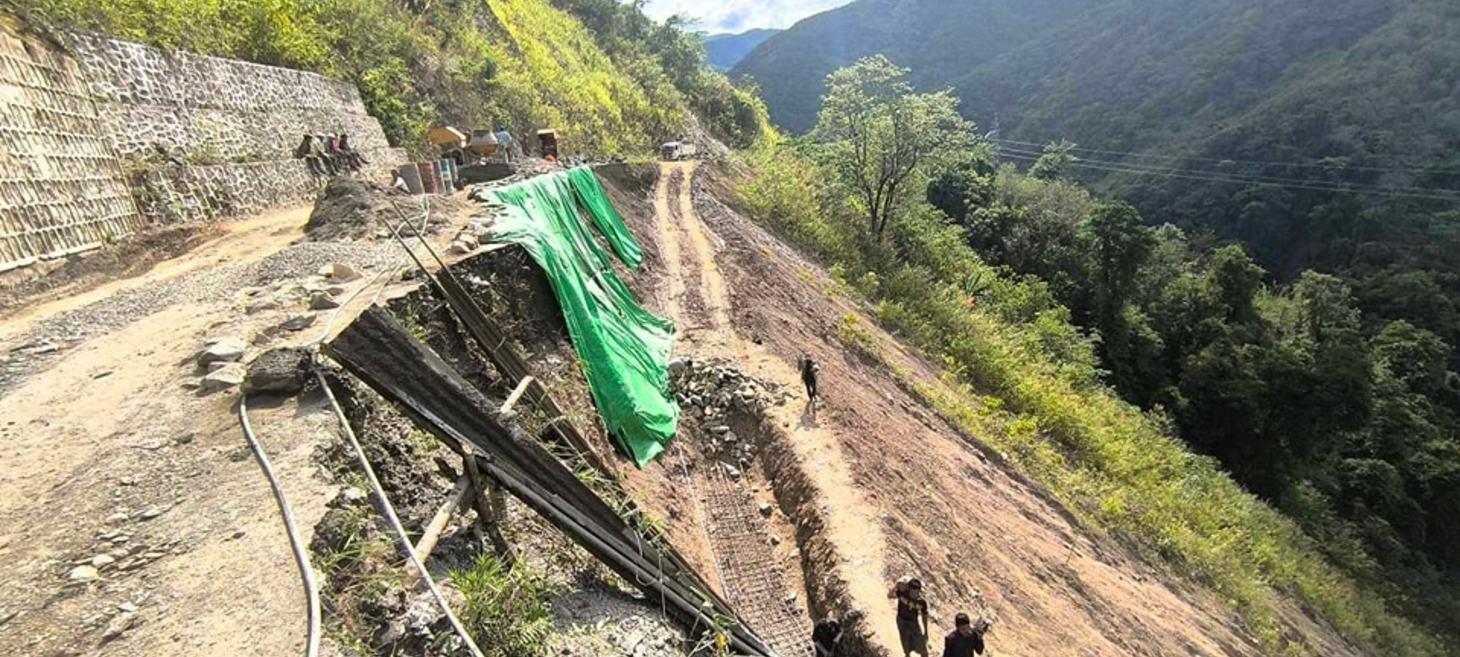
Chin Brotherhood begins reconstruction in areas under its control
The Chin Brotherhood, a coalition of armed groups battling Myanmar’s military, has begun reconstruction efforts in areas under its control in Chin State. Since their formation after the 2021 coup, the Brotherhood has captured four of Chin State’s nine townships—Mindat, Matupi, Kanpetlet, and Falam—which have suffered extensive damage from four years of fighting. Residents have already started returning to their homes in these resistance-held areas, despite ongoing concerns about airstrikes and landmines.
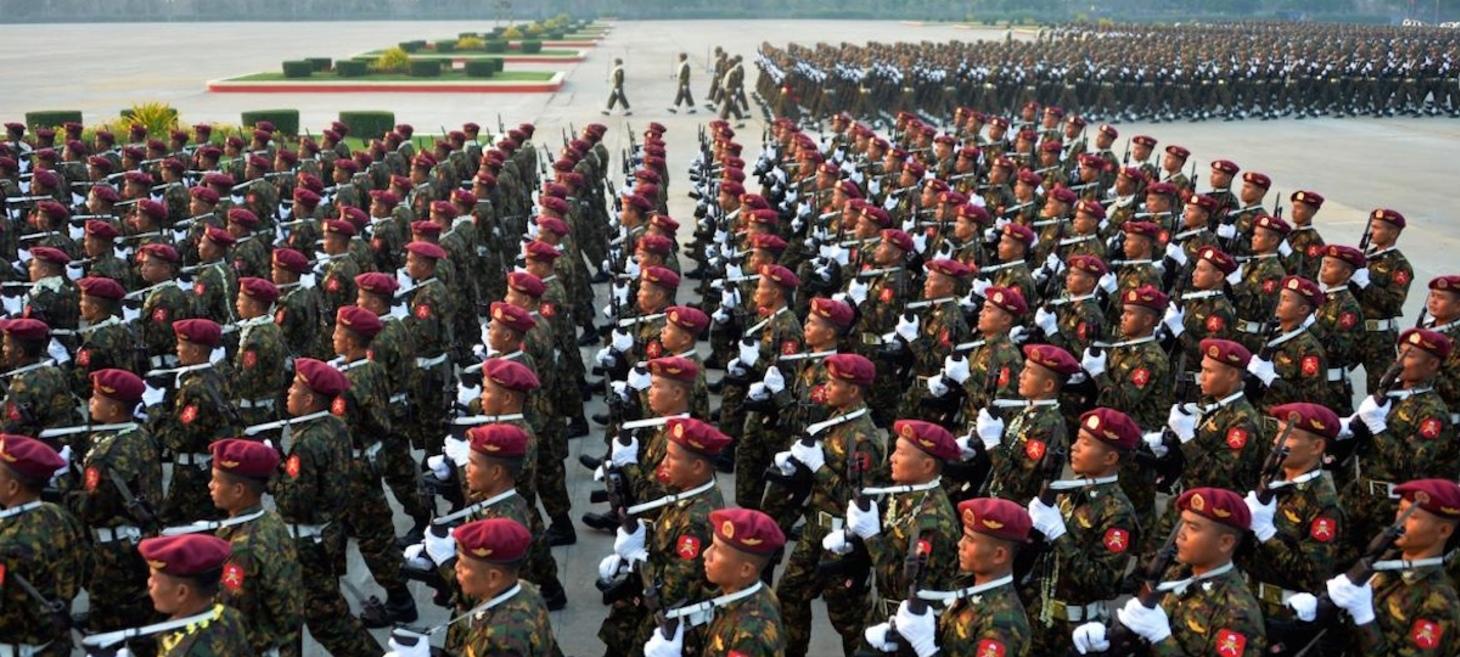
Siege warfare keeping Myanmar military in the fight
Myanmar's military, the State Administration Council (SAC), is bouncing back from heavy losses in 2023 and 2024 by employing siege warfare tactics and improving coordination among infantry, artillery, and drones. The stubborn defense of SAC garrisons, such as in Bhamo, and their unwillingness to surrender, coupled with sustained close air support from the Myanmar Air Force (MAF) and proliferating drone use, have made it difficult for resistance forces like the Kachin Independence Army (KIA) to capture urban areas. This situation suggests that anti-SAC resistance forces should reconsider their strategy, focusing instead on disrupting and controlling the regime's lines of transport and communication rather than besieging cities.
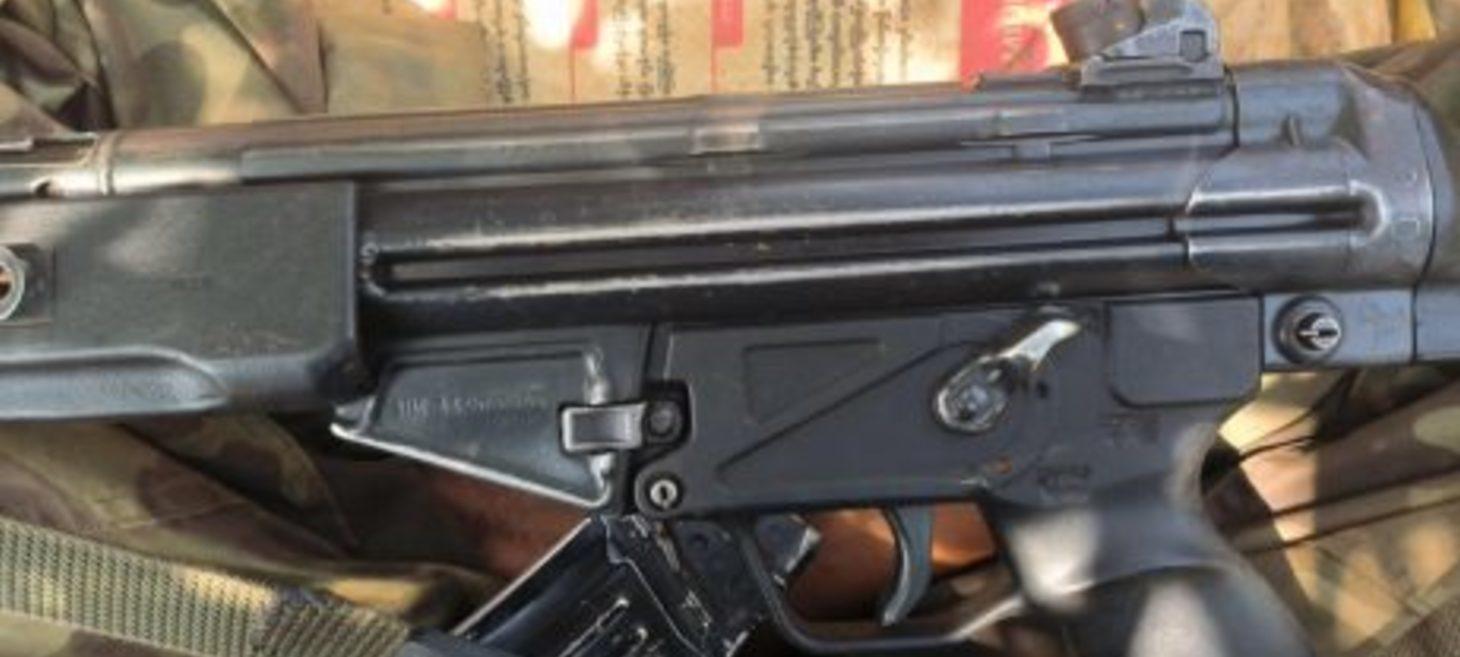
The ‘German Connection’ in Myanmar’s Civil Wars
Heckler & Koch (HK), a German firearms manufacturer whose founders had ties to the Nazi military-industrial complex, played an unheralded role in Myanmar's civil wars, initially providing the G3 battle rifle to the nascent post-colonial state through a licensing agreement with Fritz Werner. These HK arms, including locally produced G3s (BA63) and later HK33s (MA11), became integral to the Myanmar military's arsenal for fighting insurgents and suppressing civil unrest, while surplus HK33s from the Vietnam War also armed anti-regime groups like the Patriotic Liberation Army and ethnic insurgents such as the Karen National Union. The enduring presence of HK firearms on both sides of the conflict, with resistance forces even capturing and repurposing military-issued HK-derived rifles, underscores a troubling "German Connection" that has fueled decades of violence and left a tragic imprint on Myanmar.
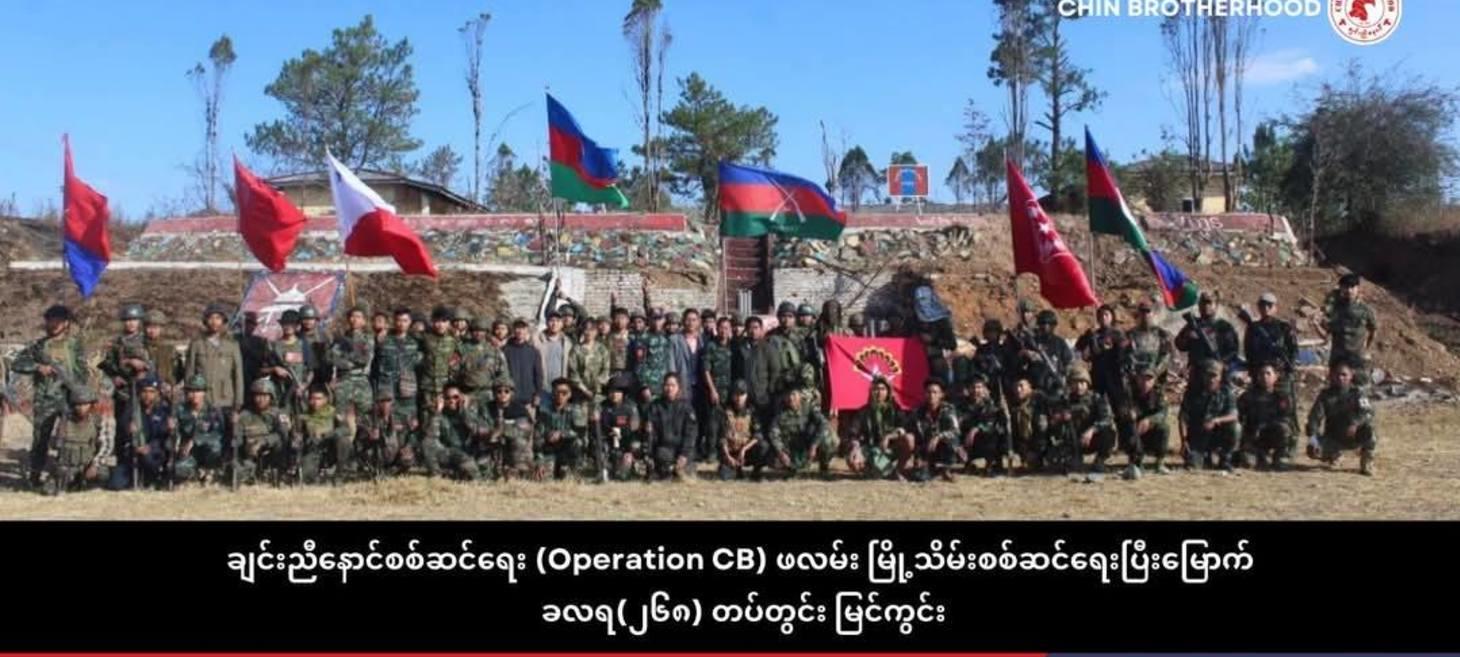
Rival Chin coalitions join forces to halt advance of junta convoy
The Chin Brotherhood and the Chinland Council have joined forces to halt the advance of a junta convoy into northern Chin State from Kalay in Sagaing Region. This convoy, consisting of 15 vehicles and over 200 ground troops, departed Kalay on May 20 and entered Chin State through Khaikam in Tedim Township. Fighting against the convoy has been ongoing at Mualpi since late May, with resistance forces aiming to prevent it from reaching Taingen village.
Conscription
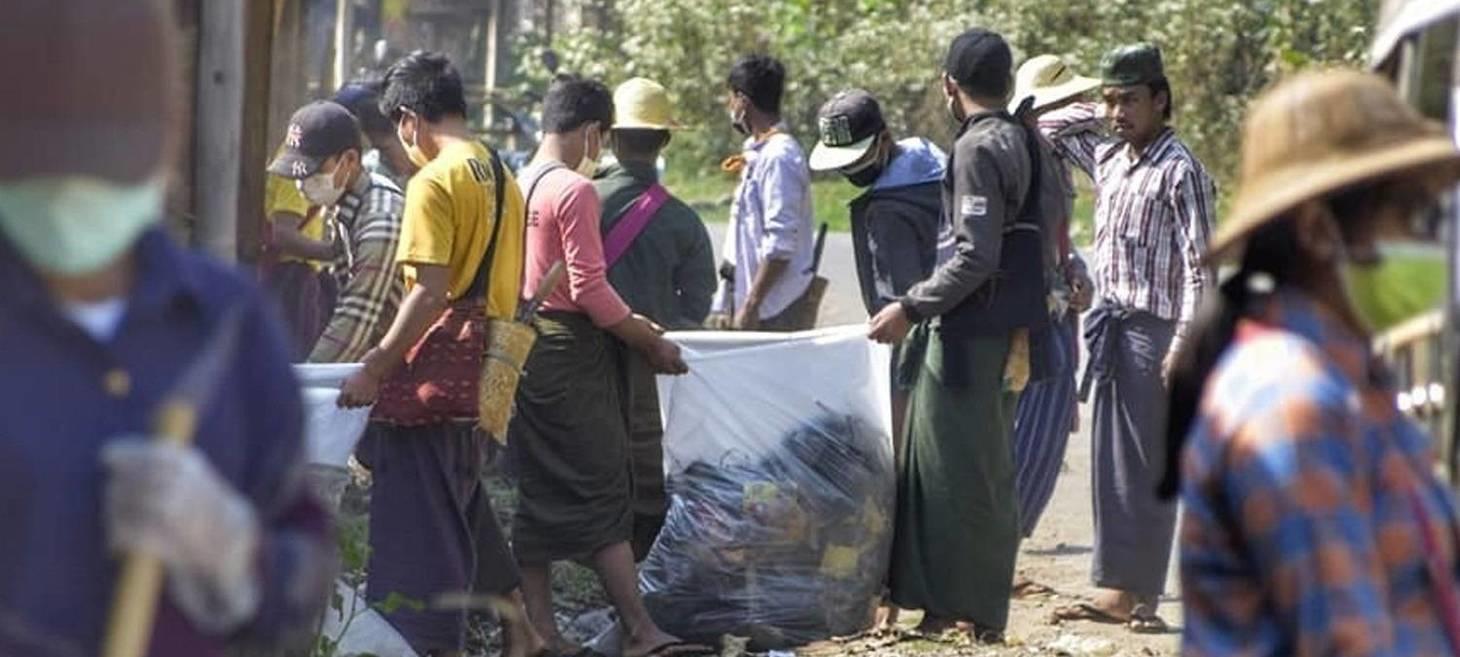
Junta-Aligned Militias Intensify Conscription and Extortion in Shan Villages
Junta-aligned militias, including the Pyu Saw Hti, are intensifying conscription and extortion in Shan villages, specifically in southern Shan State townships like Ywangan, Loilem, Panglong, Loi Lem, and Mong Tong. These forces are coercing residents into military service by compiling recruitment lists, threatening forced conscription, and imposing mandatory monthly payments, such as a collective "group fund" of 700,000 kyats or at least 2,000 kyats per household. Civilians face severe repercussions, including arrest or retaliation against their families, if they refuse to comply with draft summonses or flee, leading to increased instability and dire choices for those in conflict-affected communities.
Crime & Narcotics

Job scam: Indian agents linked to Myanmar cyber crime hub join stir with victims; trapped include youth f
Indian agents have reportedly joined victims trapped in Myanmar's KK Park cyber crime hub to send SOS messages, with victims alleging severe abuse, including beatings, confinement, and forced involvement in cyber fraud targeting NRIs. These victims, including youth from Telangana and Sri Lanka, staged a protest on June 20, leading to physical assault and confiscation of their phones by security personnel. While victims are pleading for rescue and have complained to the embassy, sources within the Indian embassy in Myanmar state they have not received any fresh distress calls through official emergency channels.
Economy
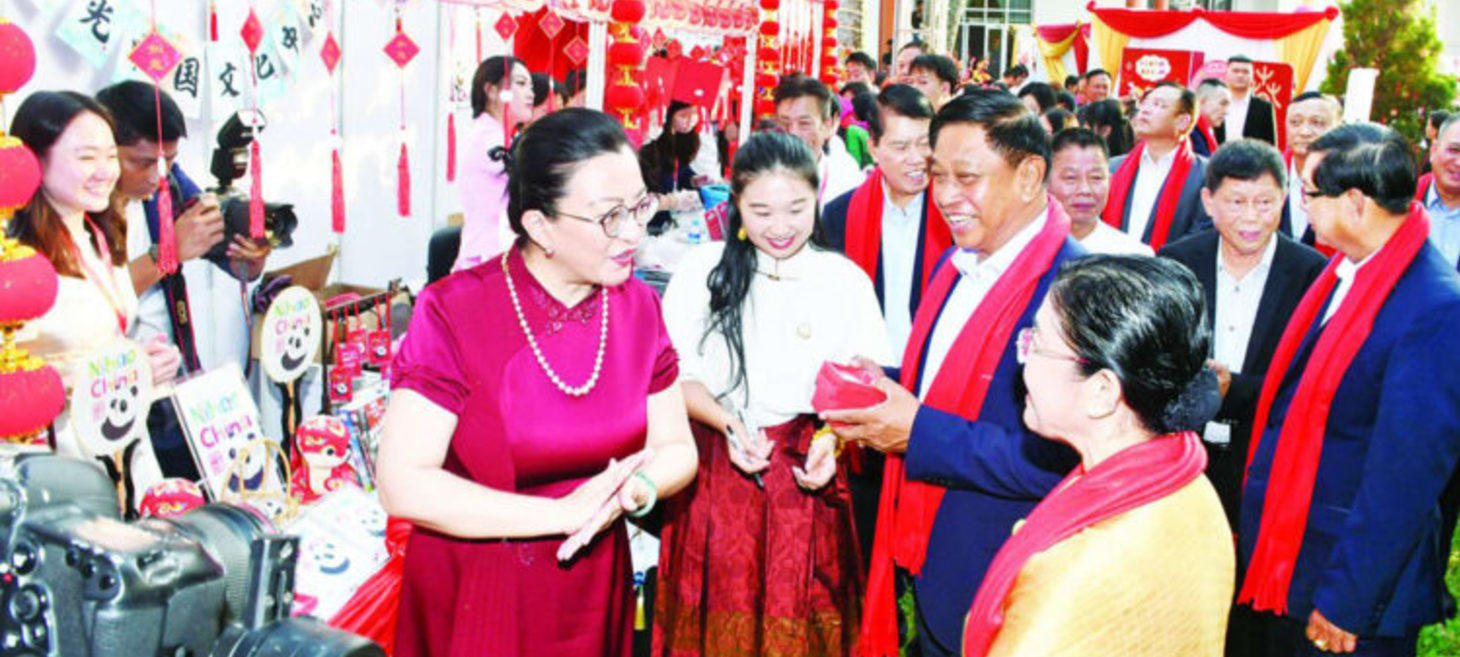
Myanmar Junta Scrambles for Chinese Energy Investment as Lights Go Out
Myanmar is facing a severe electricity crisis, with many areas receiving only eight hours of supply daily, prompting the junta to seek increased energy investment from China. Admiral Tin Aung San, the regime’s energy czar, traveled to China to meet with firms like SPICYN, developer of the controversial Myitsone Dam, and Union Resource and Engineering, backing the Mee Lin Gyaing gas-fired power plant. The junta blames previous governments and anti-regime groups for the crisis, while relying heavily on China for various energy needs, including hydropower, natural gas, solar, and wind projects.
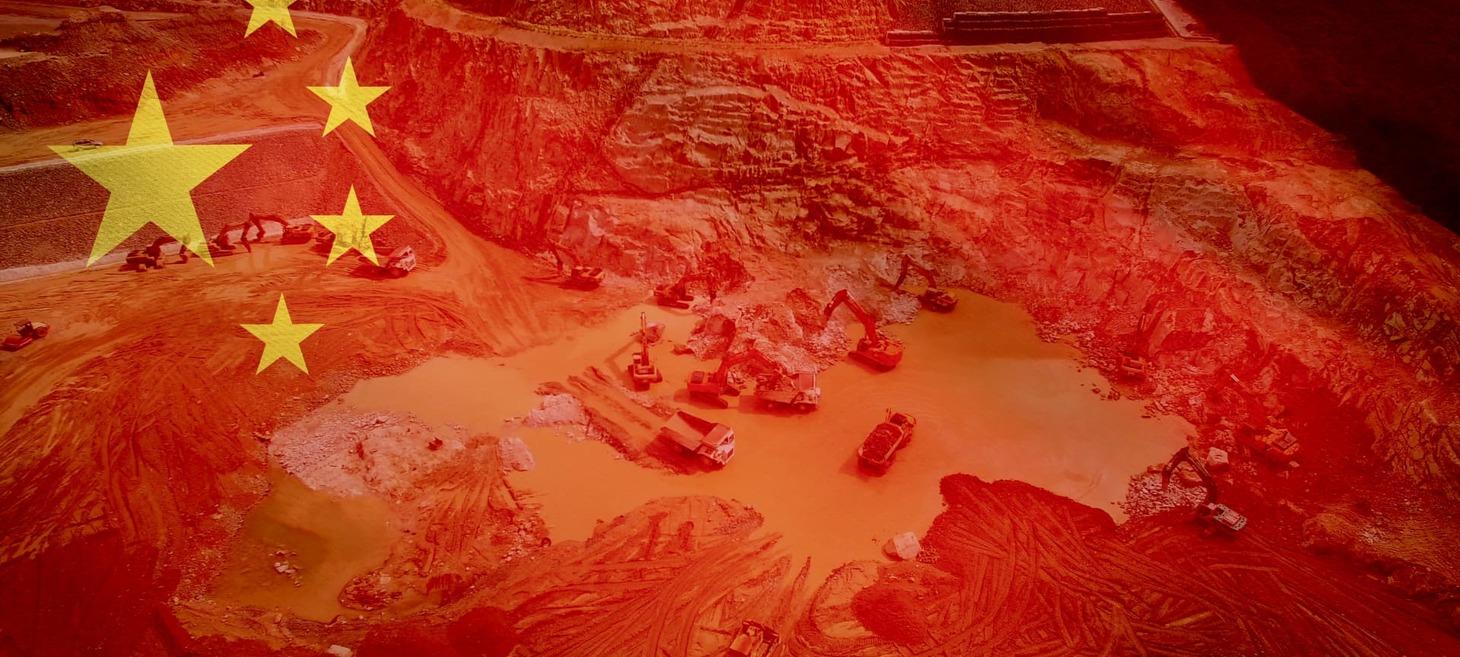
How a war-torn Myanmar plays a critical role in China's rare earth dominance
Myanmar is a critical source of rare earth elements for China, especially the less abundant heavy rare earth elements like dysprosium and terbium, with Myanmar accounting for about 57% of China's total rare earth imports last year. This reliance stems from Myanmar's ionic adsorption clay (IAC) deposits, which have high heavy rare earth content and essentially replaced domestic Chinese production after Beijing implemented stricter environmental controls. However, China's dependence on Myanmar has created significant supply chain risks due to the ongoing civil war, with reports of supply disruptions and a notable decline in imports from Myanmar in early 2024.
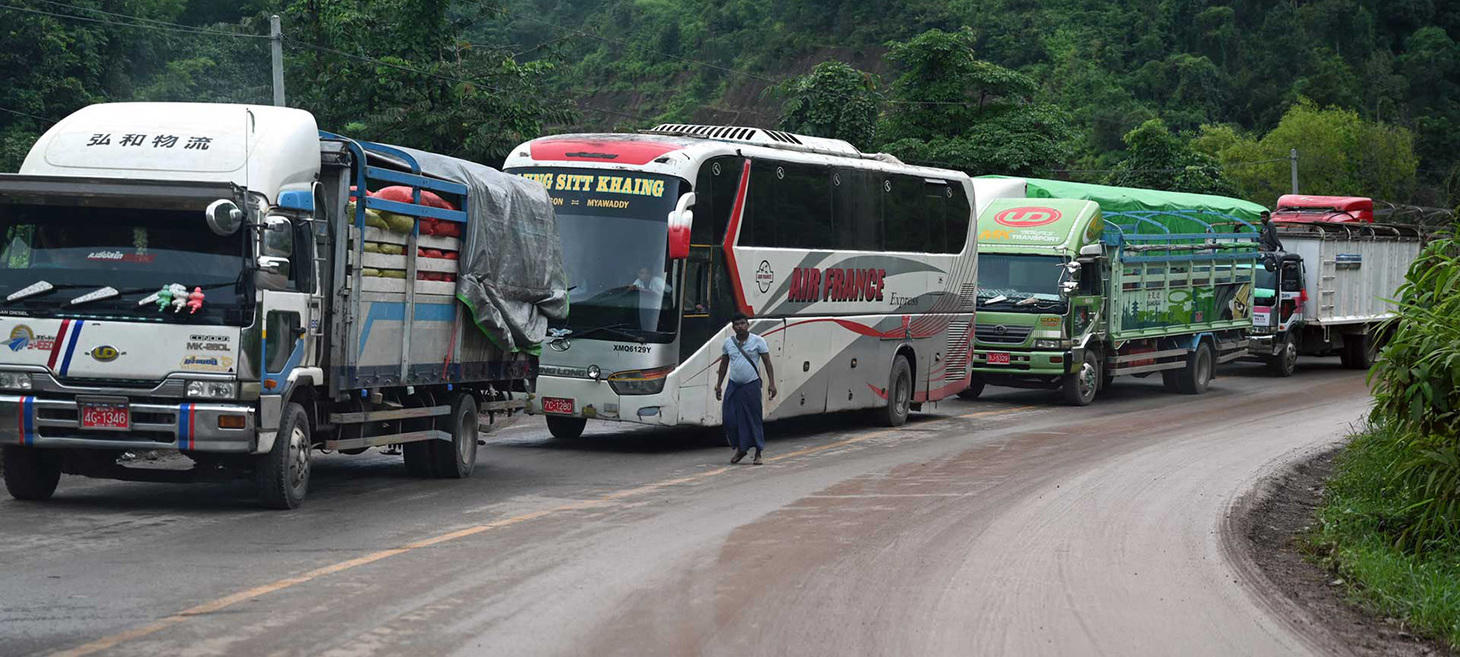
Trade and Traffic from Thai Border Region Dwindle as Checkpoints Multiply
Trade and traffic from the Thai-Myanmar border region are significantly dwindling as the main Asian Highway remains closed due to fighting, forcing vehicles onto narrower, more challenging alternate routes. These routes are now heavily dotted with numerous checkpoints operated by a variety of groups, including regime troops, ethnic armed organizations, and junta-aligned militias, all of whom levy "tolls" or "taxes" that have drastically increased transportation costs for both passengers and cargo. Consequently, travel times have extended from days to weeks, trade volume has plummeted, and there are widespread shortages and price hikes for goods in Yangon and other towns.
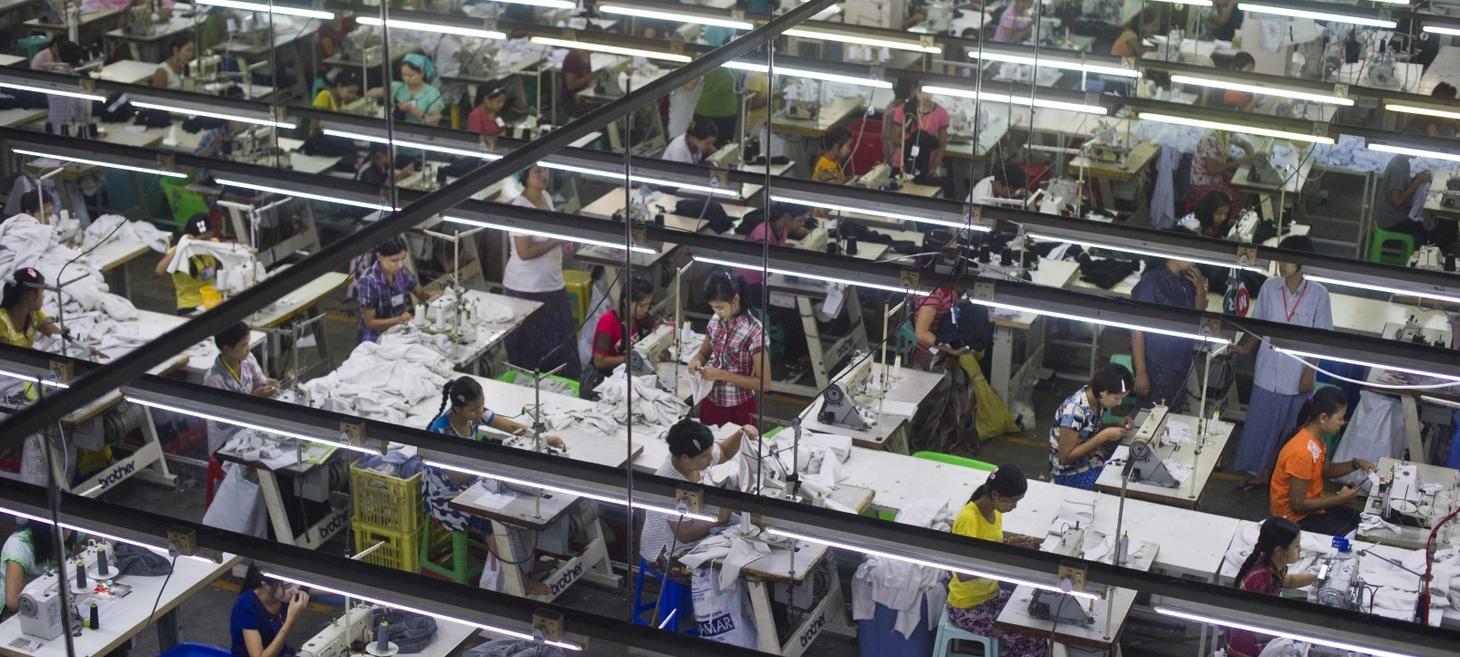
Striking gold: Myanmar workers score higher wages
Myanmar garment workers, largely women, recently initiated a series of strikes demanding higher wages and improved rights due to soaring commodity prices and insufficient pay under the military regime. These actions, exemplified by a significant strike at the Tsang Yih factory, led to notable victories such as increased daily wages and bonuses, inspiring similar protests or preemptive pay raises at other factories across Yangon. However, these gains are fragile, as workers face the risk of retribution from factory owners and the military regime, and the long-term impact of international labour decisions, like the ILO invoking Article 33, remains uncertain and potentially detrimental to employment.
Ethnic Issues
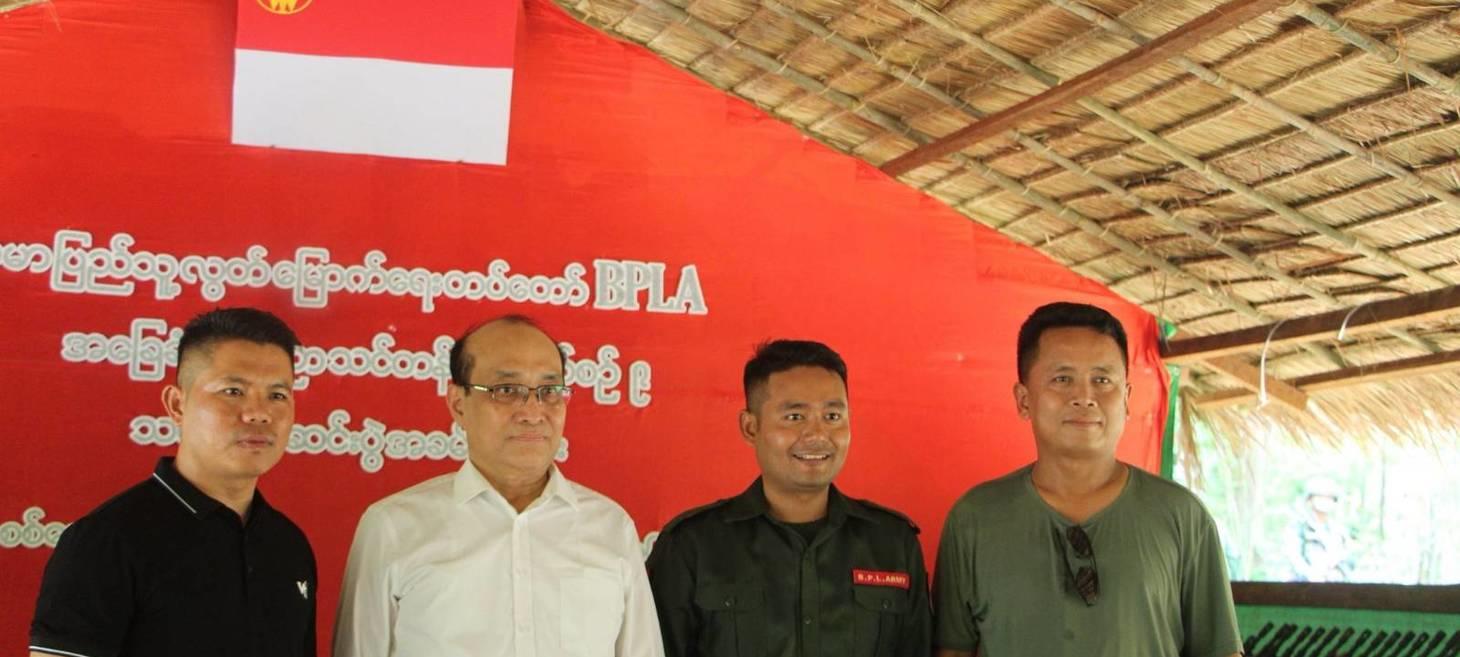
PARTIAL INTER-ETHNIC CONFLICT RESOLUTION IN SHAN STATE
A partial resolution has been achieved in the inter-ethnic conflict in northern Shan State, with the Kokang (MNDAA) reportedly toning down its expansionism and reaching an agreement with the Shan State Progress Party/Shan State Army (SSPP/SSA) to not recruit, impose administration, or collect taxes in disputed areas after initial aggressive expansion following Operation 1027. In a separate development, eighteen Chin resistance groups issued a joint statement prioritizing the fight against the common enemy, the military dictatorship, and agreeing to resolve internal territorial and ethnic disputes only after the revolution is complete through political means. Furthermore, a Bamar People Liberation Army (BPLA) basic military training graduation ceremony in a TNLA-controlled region highlighted alliance-building among ethnic resistance organizations and Bamar resistance groups like the National Unity Government/People’s Defence Force (NUG/PDF), which is seen as providing a potential fall-back position for the Ta’ang National Liberation Army (TNLA) amidst external pressures.
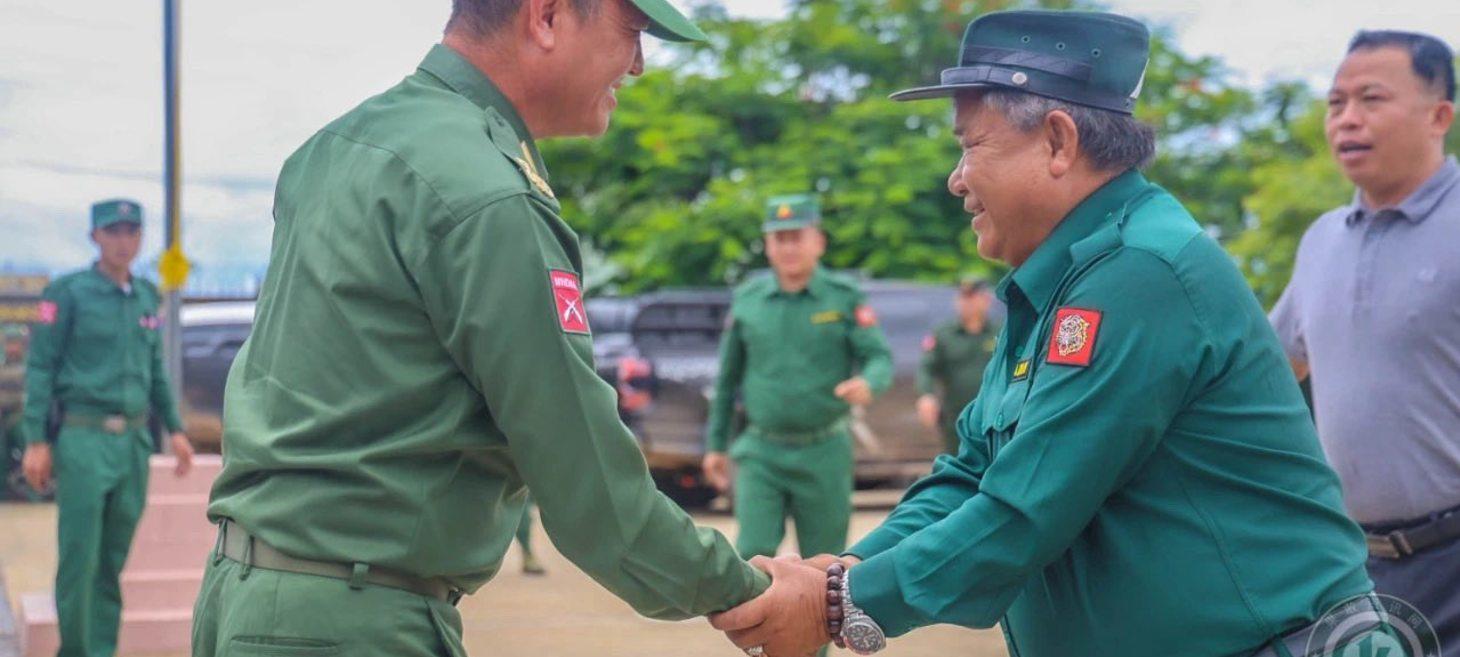
Shan and Kokang forces hold talks to end territorial fighting
Two major ethnic armed groups, the Shan State Progress Party/Shan State Army (SSPP/SSA) and the Myanmar National Democratic Alliance Army (MNDAA), held talks on June 17 in Thanlwin village, Lashio Township, to address territorial control issues in northern Shan State, specifically in Lashio and Hsipaw townships. These discussions were initiated amidst a series of deadly clashes between the two sides in recent months. According to the MNDAA, the groups agreed to enhance mutual communication for conflict resolution, establish a high-level communication and coordination mechanism, and appoint liaison officers to prevent further conflicts.
Foreign Affairs
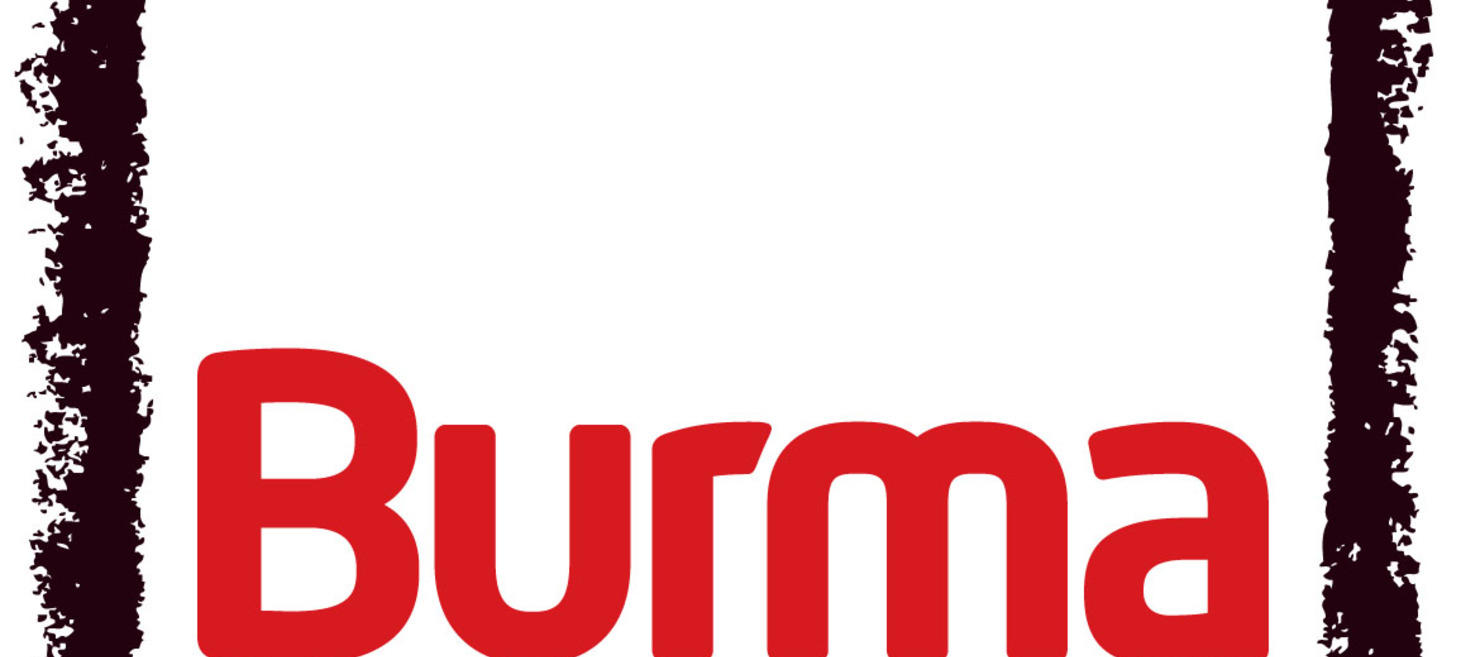
157 Organizations Call for 18-Month Extension and Redesignation of Temporary Protected Status for Burma
157 organizations have collectively called for an 18-month extension and redesignation of Temporary Protected Status (TPS) for Burma. This call, which takes the form of a civil society letter to the USG on TPS for Burma, was reported as a news story by Burma Campaign UK on June 24, 2025. The source also highlights other related advocacy efforts, such as calls for an end to internet blackouts for Rohingya refugees and for accountability of Myanmar officials.
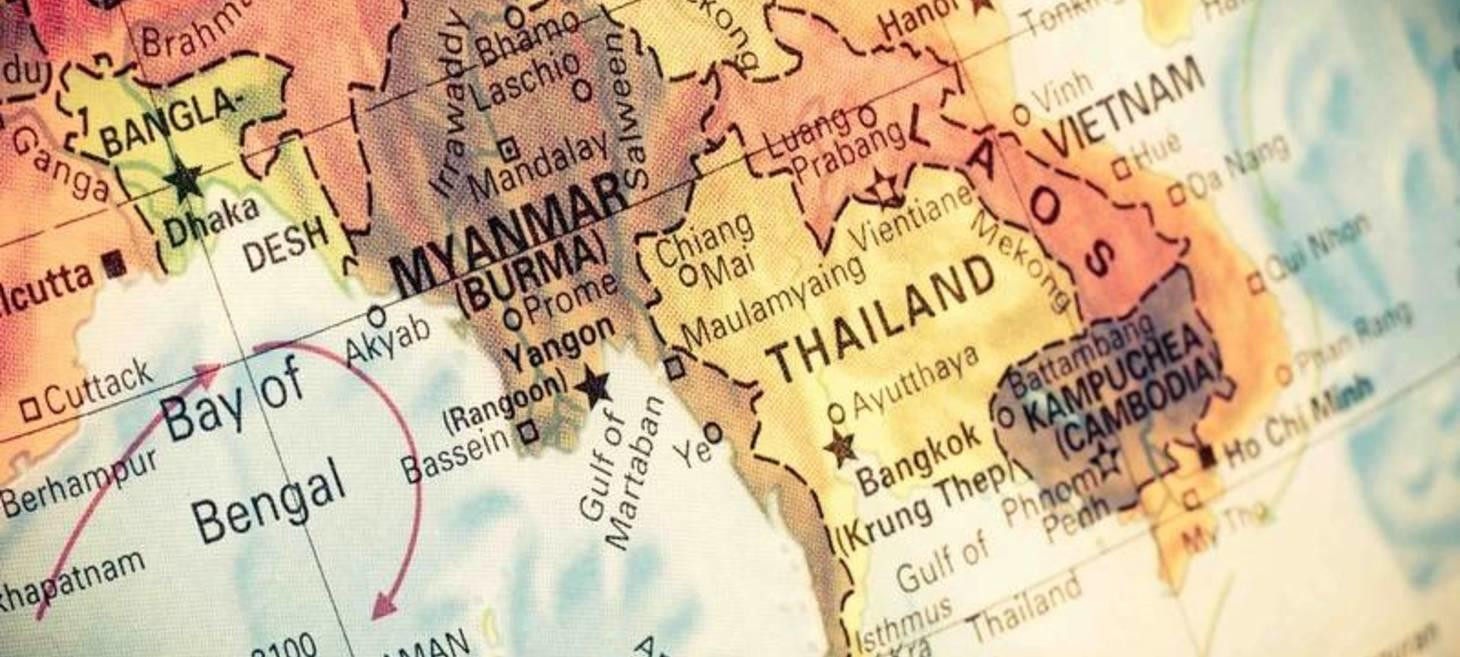
Russia Looks To Myanmar Offshore Oil And Gas Prospects
Russia and Myanmar signed an investment agreement on June 20, 2025, which is expected to open new opportunities for Russian energy companies, particularly in the development of offshore oil and gas fields in the South Asian country. This deal will also help accelerate projects in Myanmar's Dawei special economic zone, such as a 660 MW coal-fired thermal power plant, and facilitate cooperation in various other areas, including transport infrastructure, metallurgy, agriculture, and telecommunications. The agreement underscores Russia's increasingly close ties with Myanmar's military junta, which include previous pacts for a small-scale nuclear plant and a port and oil refinery in the Dawei economic zone.
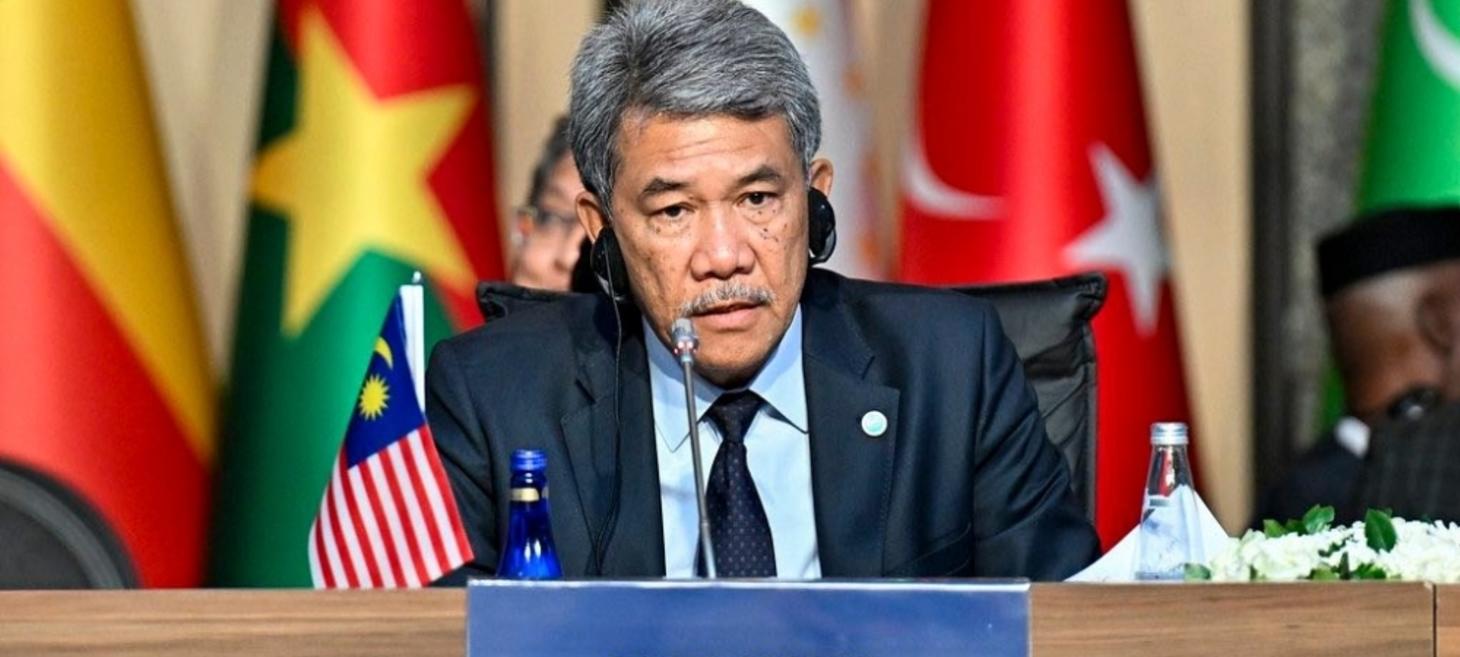
Malaysia intensifies efforts for peace in Myanmar, urges OIC to boost relief aid and support ceasefire
Malaysia is deeply concerned about the deteriorating situation in Myanmar, especially the plight of displaced Rohingyas, and is urging enhanced collaboration between ASEAN and the Organisation of Islamic Cooperation (OIC) to end violence, alleviate the humanitarian crisis, and support long-term peace. As Asean Chair, Malaysia has identified three key priorities: promoting inclusive political dialogue, ensuring the cessation of violence, and scaling up humanitarian assistance, while encouraging greater engagement between OIC Member States and stakeholders. Malaysia has intensified efforts to engage inclusively with stakeholders through the Asean Special Envoy, urged all parties to move towards a more permanent ceasefire, and contributed 30 tonnes of humanitarian aid and a field hospital following the March 28 earthquake in Sagaing City.
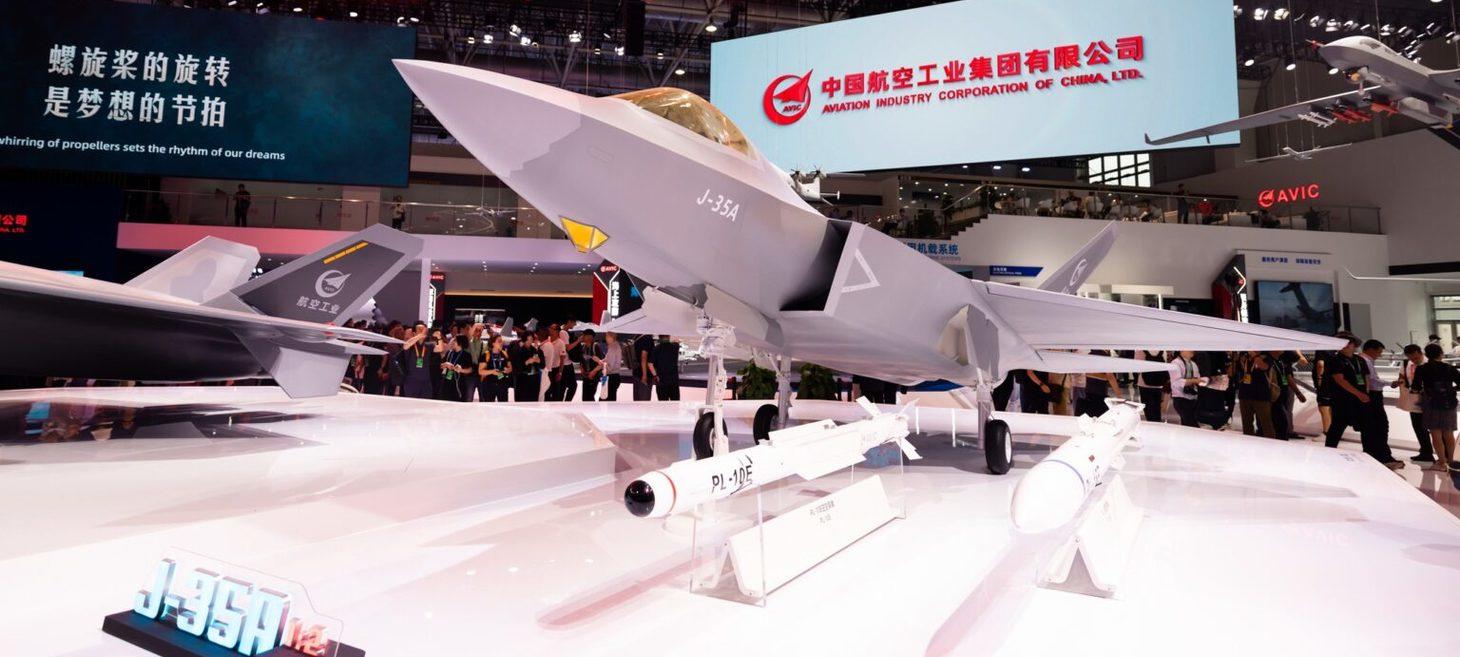
Airbus withdraws investments from Chinese company that sells fighter aircraft to Myanmar military
European aviation giant Airbus has withdrawn its 5.03% shareholding in AviChina Industry & Technology (AviChina), a Chinese military-owned company and a subsidiary of AVIC. This decision followed pressure from advocacy groups, including Justice For Myanmar (JFM), because AviChina supplies fighter aircraft and weapons, such as K8-type training and light attack aircraft and Y-12 multipurpose aircraft, to the Myanmar junta, which are used in aerial attacks that routinely result in civilian casualties. The withdrawal, worth US$140 million, is seen as a significant blow to the Chinese government and AVIC, sending a clear message about the financial and reputational costs for those enabling war crimes and serving as a warning to other international businesses.
General News
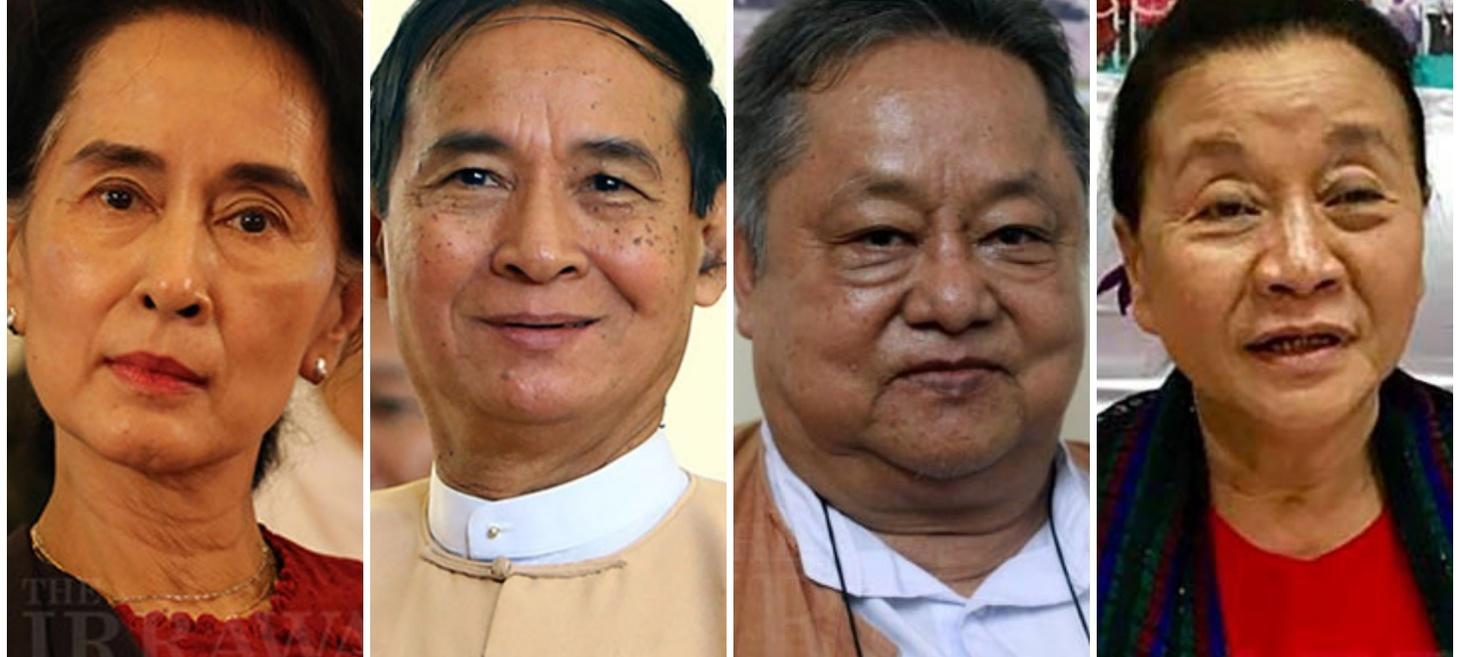
Myanmar’s Aging Leaders Continue to Suffer in Junta Jails
Myanmar's aging political leaders, including State Counselor Daw Aung San Suu Kyi (80), U Win Htein (84), and U Win Myint (73), continue to suffer in junta jails following the 2021 coup, serving lengthy sentences. Many of these prisoners are experiencing severe medical conditions, with some, like Dr. Zaw Myint Maung and U Win Khine, dying after inadequate treatment or pardons granted just before death, while others, like Daw Aung San Suu Kyi and U Win Htein, also suffer from various ailments. Their detention is condemned by international bodies and local associations as unjust and a form of "slow, calculated torture" due to the denial of proper medical care, with no indications of their release from the junta.

Leaked footage and prison logs reveal Aung San Suu Kyi’s life in detention
Leaked footage and prison logs have provided a rare glimpse into the daily life of Aung San Suu Kyi, Myanmar's ousted civilian leader, who has been held in solitary confinement since the military seized power in February 2021, with her access to the outside world strictly controlled and her trials condemned as politically motivated. These detailed records reveal a regimented life in a specially built detention facility where she faces concerns about her health due to "rudimentary and basic" medical care, sparse meals, and isolation, leading her family to express extreme concern for her well-being. While the military appears content to "wait it out" regarding her detention, her death in custody could provoke "incredible anger" and reinvigorate resistance among the Burmese people, who still view her as a revered symbol of the pro-democracy struggle despite her reduced international standing.
Humanitarian
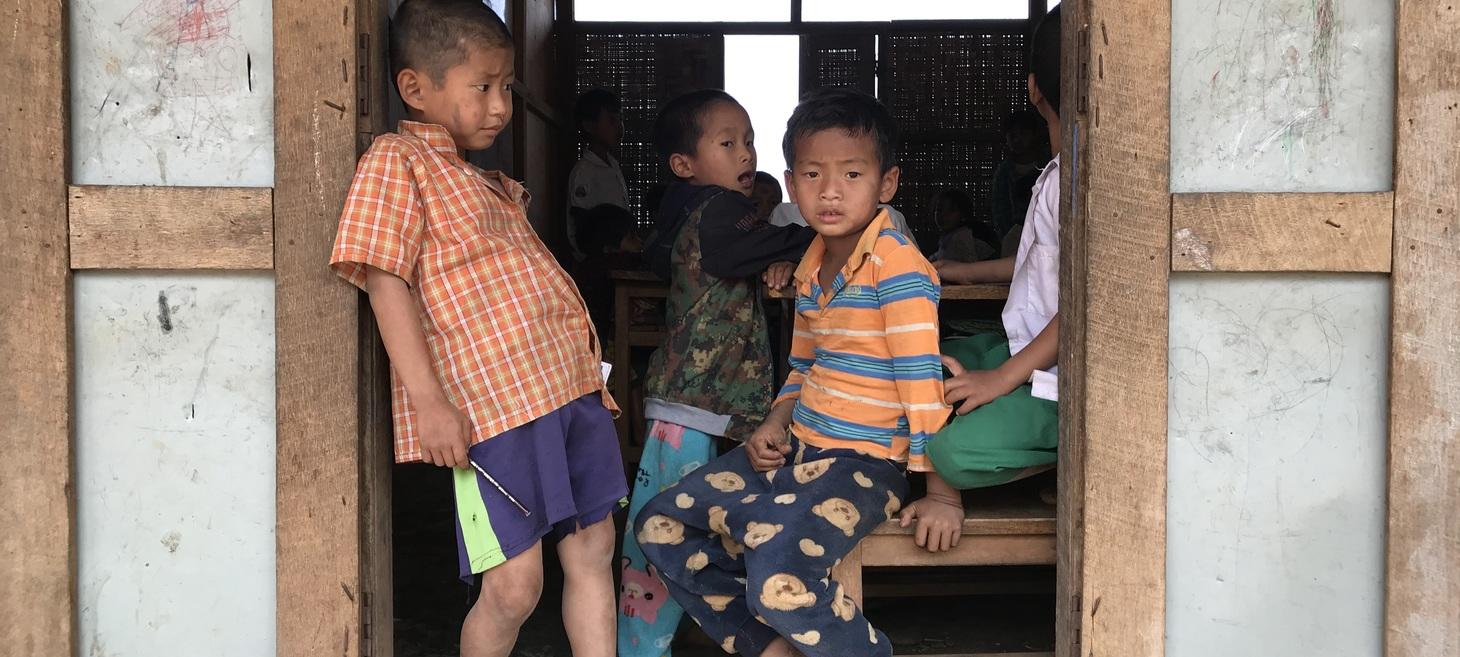
Children long for books instead of bullets in Myanmar
The Melbourne Catholic organization, encompassing entities like St Patrick’s Cathedral, exists to serve the people of God by enabling the Gospel of Jesus Christ to come alive in the local community, offering avenues to learn about Jesus, live one's faith, connect within the Catholic community, and prioritizing safeguarding. Separately, the sources detail a devastating humanitarian crisis in Myanmar, stemming from four years of escalating conflict, natural disasters, and political violence, which has left nearly 20 million people, including over six million children, in urgent need of humanitarian assistance, with many displaced and suffering from lack of basic necessities. In response, Jesuit Mission Australia is providing urgent aid like food, clean water, shelter, medicine, and educational support through its Emergency Action Fund, emphasizing that "children long for books instead of bullets" and urging donations to help restore their right to learn and grow in safety.
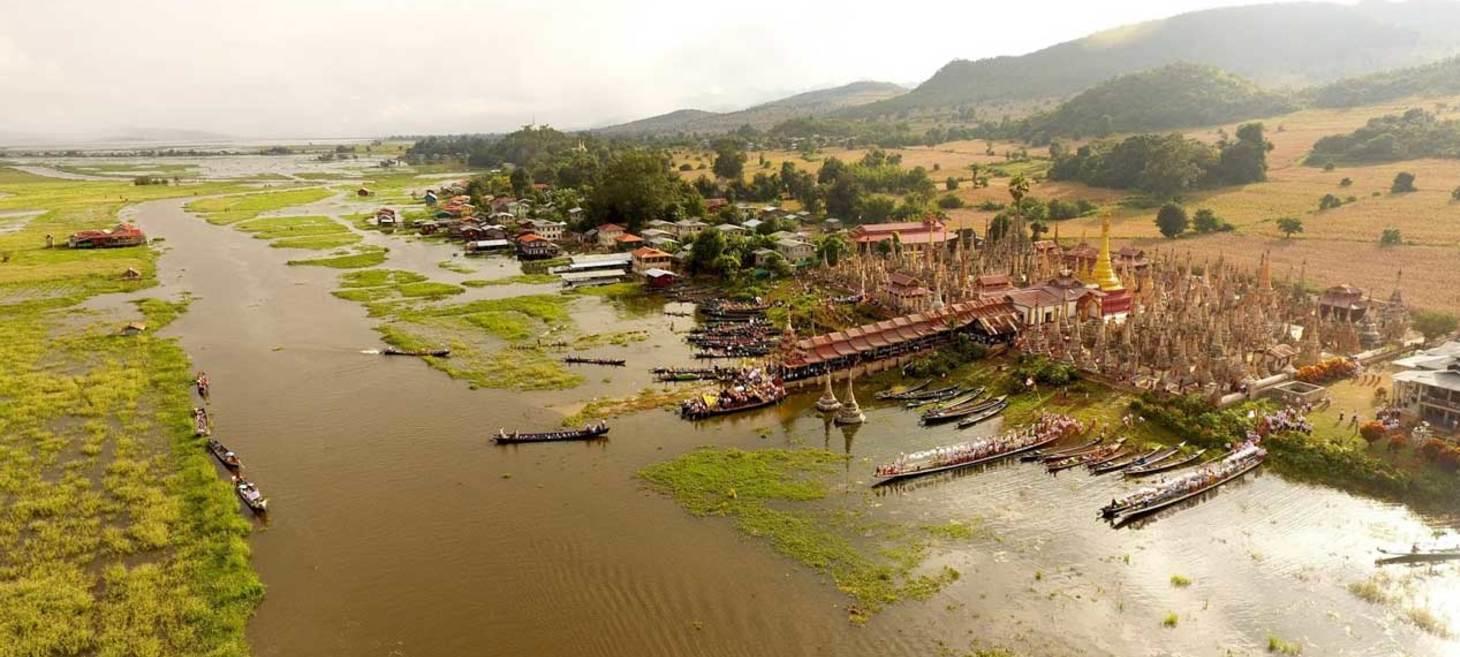
PNO Boat Ban in Samkar Escalates Humanitarian Crisis
The Pa-O National Organization (PNO), a militia aligned with Myanmar’s military council, has imposed a ban on boat travel and fishing in the Samkar area of Nyaungshwe Township, southern Shan State, since June 1, 2025. This restriction has escalated a humanitarian crisis by cutting off residents' access to essential services like Taunggyi Hospital, forcing reliance on difficult overland routes, and is compounded by the PNO's growing military presence, civilian movement restrictions, forced labor, and seasonal flooding that has devastated crops. The PNO, which has administrative authority over Hopong, Hsihseng, and Pinlaung townships, is actively fighting alongside regime forces against anti-coup resistance groups in Taunggyi District.
Natural Resources
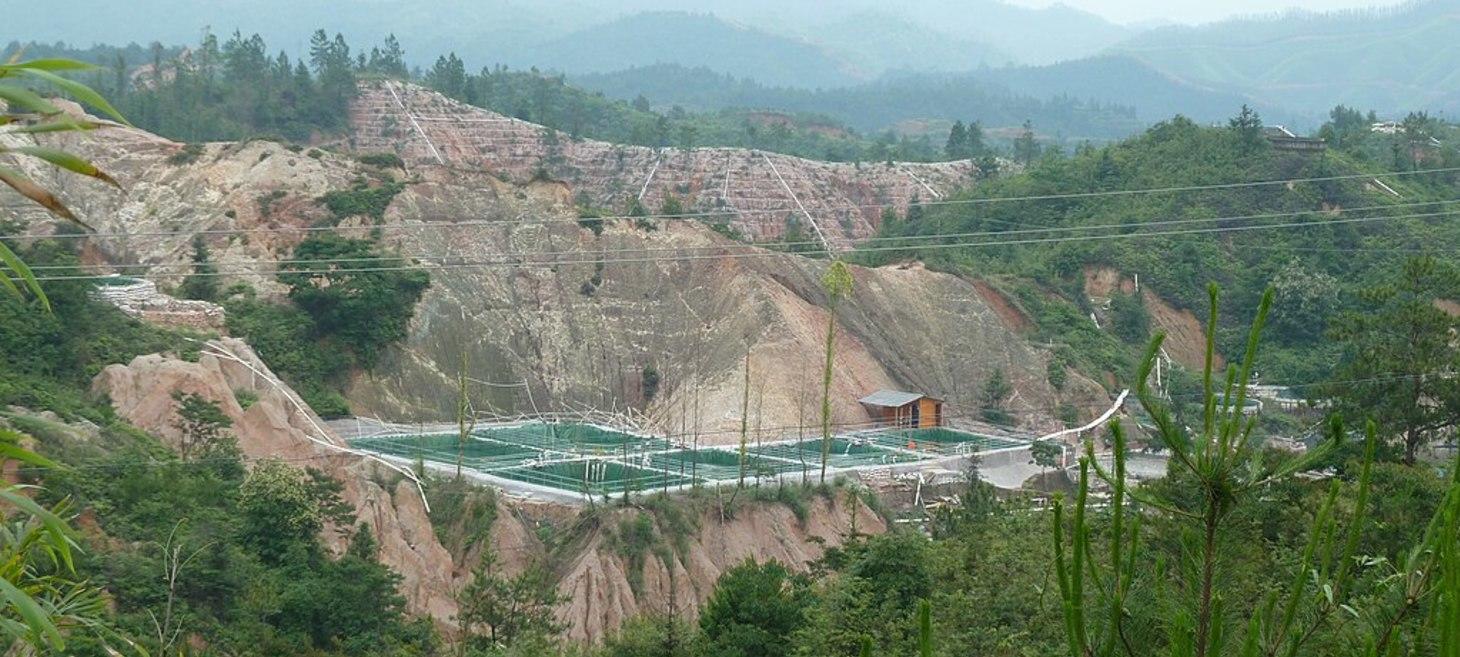
Rare Earths and Realpolitik
Rare earth extraction has rapidly expanded in northern Myanmar's Kachin State since the February 2021 coup, with the Kachin Independence Army (KIA) seizing control of valuable mines and the lucrative export of these essential minerals to China. This control has enabled the KIA to negotiate directly with China, leading to a new taxation regime and formalizing the group's role as the de facto governor of a critical supply corridor, managing export taxation and gaining significant leverage and revenue. The situation reflects larger geopolitical shifts, making Myanmar's northern corridor a critical pressure point in the global contest over rare earths, with China dependent on these supplies and India seeking access to reduce its own reliance, redefining the political landscape of the region.
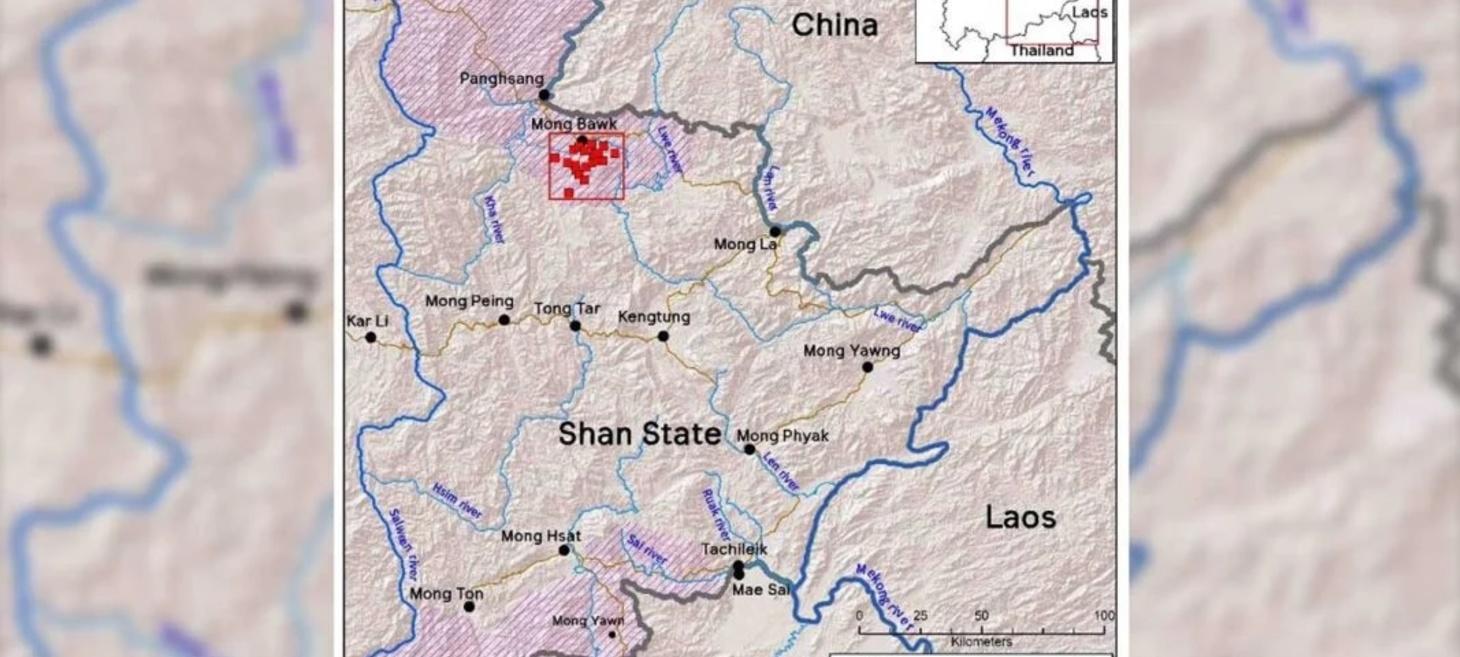
Rare Earth Mining Booms in UWSA Territory, Triggering Alarming Environmental Fallout
Rare earth mining has boomed in the United Wa State Army (UWSA)-controlled territory of Mong Bawk, increasing eightfold over the past ten years to at least 26 mines by 2025, with this expansion accelerating unchecked since the 2021 military coup. This mining utilizes the "in situ leaching" method, triggering alarming environmental fallout such as the pollution of forests, surface water, and groundwater, with waste leaking into the Pai River and flowing into the Salween and Mekong Rivers, endangering the health and livelihoods of local communities downstream. The Shan Human Rights Foundation (SHRF) believes these operations are not officially permitted by Myanmar’s military council, but are likely part of a regional arrangement between the UWSA and China, allowing Chinese-backed companies to directly export these essential minerals, contributing to Myanmar becoming the world's third-largest rare earth producer.
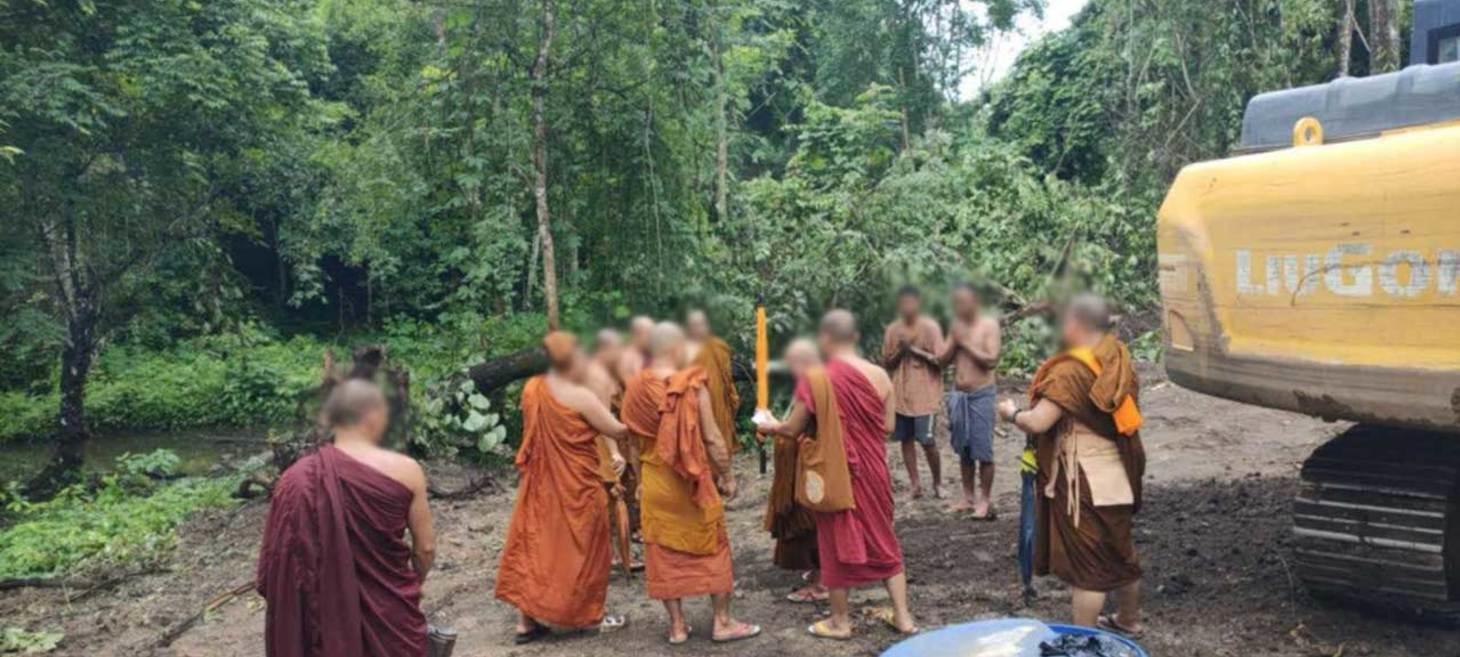
Gold Mining Continues in Mong Yai Despite Local Protests
Gold mining operations are continuing in Kawng Wein Village, Mong Yai Township, Shan State, despite strong opposition from local residents and religious leaders who consider the site a vital water source and spiritual area. These activities, which began in the second week of June, are supported by the Myanmar National Democratic Alliance Army (MNDAA), who issued a letter of authorization for mining in areas nominally controlled by the Shan State Progress Party (SSPP/SSA). The continuation of mining, even after negotiations between the MNDAA and SSPP, raises alarms about contested territorial authority, threats to natural resources, and growing risks to civilian safety in the region.